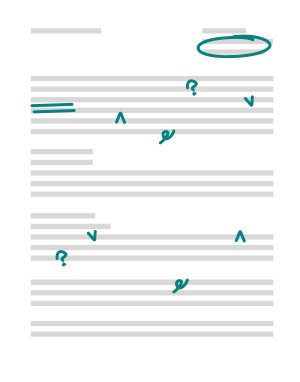Including Professional Development on a Resume (Examples)

In today's competitive job market, job seekers need to do everything they can to stand out from the crowd. Many job seekers would benefit by adding a Professional Development section to their resumes. A professional development section can include continuing education courses, certification programs, on-the-job training, webinars, and conferences that are relevant to your career.
Including this section can really help capture the attention of a hiring manager and give you a leg up on the other candidates. By showcasing your commitment to continuous learning and development, you can demonstrate to potential employers that you have the skills and knowledge to excel in your field. We'll show you how to list professional development programs on a resume, along with some examples.
What is professional development?
When it comes to including professional development on your resume, it's important to focus on relevant experiences that demonstrate your commitment to staying up-to-date in your field. Think about the skills and knowledge required for the position you're targeting, and select professional development experiences that align with those requirements.
Here are some examples of what you can include for professional development experience:
Continuing education: This can include formal courses, such as a degree or certificate program, as well as informal learning, such as attending workshops or online tutorials.
Seminars: Attending industry conferences and seminars can provide valuable networking opportunities and help you stay informed about the latest trends and best practices in your field.
Training: On-the-job training, in-house training programs, and professional development programs offered by your employer can also be included in this section.
Certifications: If you've earned any relevant certifications or licenses, be sure to include them in this section. These can be industry-specific or more general, such as a project management certification.
Workshops: Like seminars, workshops are short-term training sessions that focus on a specific topic or skill. Including relevant workshops you've attended can demonstrate your eagerness to learn and stay up-to-date.
Online courses: With the rise of online learning platforms, there are many opportunities to take courses and earn certifications online. Including any relevant online courses you've completed can demonstrate your ability to stay engaged and motivated in a self-paced learning environment.
The five stages of professional development - growing your career
As you navigate your career, you will encounter various stages of professional development. Understanding these stages can help you set goals, develop new skills, and take charge of your career.
Here are the five stages of professional development and what you can expect from each:
Stage 1: Learning the Ropes
In this stage, you’re new to your job and are focused on learning the basics. You’re still developing your skills, and your primary goal is to become competent in your job duties. You may feel overwhelmed at times, but with time and practice, you will gain confidence and competence.
Stage 2: Building Your Expertise
As you become more comfortable in your role, you will move into the expertise-building stage. You will focus on developing your skills and building your knowledge base. This is the stage where you will start to see the most growth in your career as you become a more valuable member of your team.
Stage 3: Taking on Leadership Roles
Once you have built up your expertise, you may be ready to take on leadership roles. This could mean managing a team, taking on a project lead role, or mentoring others. You will need to develop strong communication and management skills to succeed in this stage.
Stage 4: Advancing in Your Career
As you gain experience and develop leadership skills, you will be ready to take on more advanced roles. This could mean moving up within your organization, taking on a new job with more responsibility, or starting your own business. You will need to be strategic and proactive in your career planning to succeed in this stage.
Stage 5: Giving Back
In the final stage of professional development, you will focus on giving back to others. This could mean mentoring new employees, volunteering in your industry, or teaching others. By sharing your expertise and experience, you will help others grow and succeed in their careers.
Positioning and labeling the professional development section
In order to properly showcase your growth and expertise through the courses, seminars, and certification programs you’ve attended, it’s critical to decide where on your resume to put the information. Consider the nature of the professional development experiences you're including, as well as the overall structure and flow of your resume.
For example, if you have a mix of formal education and informal learning experiences, you may want to use a more general header like "Professional Development" or "Continuing Education." On the other hand, if you have several industry-specific certifications, you may want to use a more specific header like "Credentials and Certifications."
No matter what you choose for the header, the most common location for the information is after the professional experience section. It can be a standalone section, or you can combine the information with your “Education” section. If you have only one or two professional learning items to add to this section, then you could just combine them with your education.
Be sure the header and content are consistent with the format of other sections of your resume. Include the date, name of the program, and the institution or organization that provided it, as this information helps demonstrate the credibility and relevance of your professional development experiences.
Example of professional development on a resume:
Education, Professional Development, & Credentials
Bachelor of Arts, Communications – Seattle University, 2012
Marketing Courses – UC Berkeley Extension
Credentials– Digital Marketing Master Certification, Google Analytics Certified, Meta Marketing Certification
When not to use a professional development section
While including a professional development section can be beneficial, it's important to know when not to use it. If there are certain certifications or training programs that are required for the position, then you should give it a separate section and label it accordingly. For example, if you are applying for a nursing position, your nursing certifications and licenses should have a separate section, as they are essential to the job. Similarly, if you are applying for a job in a technical field, listing relevant technical certifications can help you stand out as a qualified candidate.
It's important to avoid including certifications or training that are not relevant to the job you are applying for. A CPR certification won't do you any good if you're applying for an accounting position. In fact, it could detract from your actual qualifications. Make sure that the information you include helps show why you're a good match for that particular position.
Summary
A professional development section can really help you stand out from the competition. Showing relevant continuing education, training, and other professional development will give you a leg up on the other candidates.
ZipJob can help make the professional development section of your resume really shine! Get a free review for feedback on what you currently have and how we can help.
Recommended reading:

Written by
Marsha Hebert, Professional Resume Writer
Marsha is a resume writer with a strong background in marketing and writing. After completing a Business Marketing degree, she discovered that she could combine her passion for writing with a natural talent for marketing. For more than 10 years, Marsha has helped companies and individuals market themselves. Read more advice from Marsha on ZipJob's blog.
